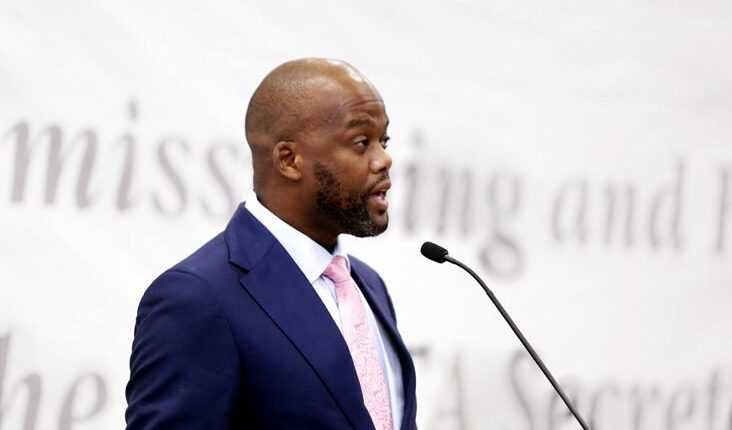The Secretary-General of the AfCFTA, H.E. Wamkele Mene, has bemoaned the fact that Africa has for the past 60 years operated a colonial economic model which has trapped the continent in a state of underdevelopment for decades after the end of colonialism.
According to him, the time has come for Africa to change this model by harnessing the benefits of the AfCFTA.
Speaking at the maiden edition of the Africa Trade Roundtable, Mr. Wamkele stated that it is imperative for member states to boost intra-Africa trade beyond the current 18% threshold.
“We have sustained over the last 60 years, what I call, a colonial economic model which has trapped Africa in a state of underdevelopment for decades after the end of colonialism”.
He also stressed the need to industrialize the continent by leveraging the AfCFTA to improve Africa’s productive capacity in the coming decades.
Key challenges
Also, he hinted that the AfCFTA has established a forum for the resolution of trade, investment and intellectual property disputes adding that, the platform will function like any other court of law in addressing issues brought before it.
Furthermore, Mr. Wamkele revealed that a total of 38 countries have ratified the treaty establishing the African Continental Free Trade Area (AfCFTA).
This development, he believes, would lead to the improvement of market access and reduce barriers to trade in Africa. Also, he noted that it will help reduce and eliminate limitations to intra-Africa investment.
Despite these giant strides, Dr. Mene outlined several challenges that could hamper the implementation of AfCFTA. Some of these include Africa’s shallow industrial capacity, fragmentation of markets, and smallness of national economies. Another major constraint is the over-reliance on primary export commodities to “countries of the North”.
AfCFTA key to long-term survival of businesses
Meanwhile, Dr Mahamudu Bawumia, who also joined the discussions via zoom underscored the urgent need for member states to kick-start trading under the AfCFTA.
The Vice President stated that economic integration of Africa will lay a strong foundation to achieve the Sustainable Development Goals (SDGs).
He added that it is also instrumental in the African Union blueprint and masterplan agenda 2063 that seeks to create “the Africa that Africans hope for”.
Dr Bawumia, therefore, expressed his government’s unwavering commitment to the operationalization of the AfCFTA Secretariat in Ghana. He also underscored the government’s commitment to accelerating industrial transformation for inclusive economic growth and development.
“The AfCFTA is a key to long term survival of African businesses recovering from the adverse effects of the COVID-19 pandemic… And who are seeking to leverage new opportunities in new markets”.
Need for a strong commitment
Furthermore, the Registrar of UPSA, Dr Koryoe Anim-Wright indicated that the AfCFTA presents a very bright opportunity for Africa. According to her, it will help create a single market for goods and services.
However, she noted that, this is not the first time Africa is embarking on such a continental project. As a result, Dr Anim-Wright opined that a strong commitment from African countries is required. She believes this is the only way Africa can realize the objectives of the AfCFTA.
“If the story of the past should be a yardstick, then it behooves us all to ensure that this time our resolve matches our ambition”.


Comments are closed.